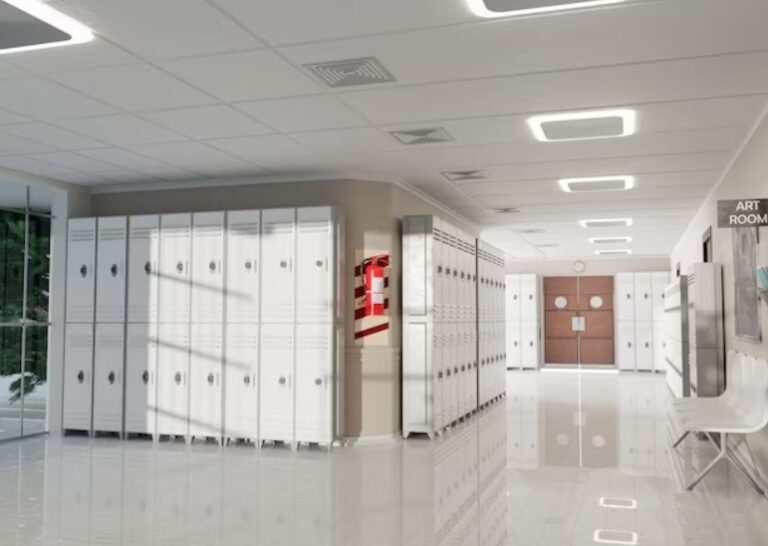Self-storage has witnessed a surge in popularity, offering a versatile solution for those in need of additional storage space, be it for a short-term or an extended duration. This multifaceted solution caters to a wide array of items, from everyday household goods to valuable business documents and inventory. Self-storage units come in a spectrum of sizes, ensuring the perfect fit for your unique storage needs. Worries about the safety of your possessions due to weather or theft become a thing of the past, thanks to robust security measures. Moreover, the convenience factor is a game-changer, providing unrestricted access to your stored items whenever the need arises. Self storage is rapidly gaining traction, thanks to its myriad benefits, making it an attractive choice for individuals with diverse requirements.
Delving deeper into the self-storage phenomenon, we find a dynamic solution for those facing space constraints in an ever-evolving world. Secure and adaptable, it caters to a wide range of storage needs, from everyday items to crucial business assets. These units vary in size, ensuring a tailored fit for your specific requirements. The worry of potential damage or theft is nullified by stringent security measures in place. Additionally, the freedom to access your belongings at your convenience simplifies transitions between spaces, whether it’s homes, offices, or other environments. As self storage continues to gain ground, its appeal spans a wide spectrum of individuals with varying needs.
Types of Self Storage
The realm of self-storage has witnessed a burgeoning interest in recent years, offering individuals a secure and convenient avenue for safeguarding their possessions. Whether you seek to store a handful of items or an entire household’s worth of furnishings, there exists a self-storage option perfectly tailored to your needs. Within this domain, we explore three primary categories of self storage: traditional units, climate-controlled facilities, and portable storage solutions.
Traditional Units
The conventional self-storage unit, often featuring sturdy metal constructions with either roll-up or swing-open doors, is a prevalent choice. These units span various sizes, ranging from compact 5×5 feet spaces to more expansive 10×30 feet options, catering to diverse storage requirements. While traditional units might not feature temperature regulation, they offer fundamental protection against weather-related damage and pest intrusion, rendering them suitable for a wide spectrum of storage needs.
Climate-Controlled Facilities
Stepping up the game, climate-controlled units provide an extra layer of defense against extreme temperature fluctuations and humidity variations, especially in regions susceptible to such extremes. These units boast insulated walls and ceilings, coupled with integrated air conditioning and heating systems, ensuring your possessions remain shielded from the ravages of prolonged storage. Particularly advantageous for safeguarding sensitive items such as electronics, artwork, antiques, or other valuables, climate-controlled units set a high standard in storage solutions.
Advantages of Using Self Storage
For those seeking a versatile and cost-effective storage solution, self storage stands as a compelling choice, offering a plethora of benefits. These advantages include:
- Flexibility: The hallmark of self storage is its unparalleled flexibility, encompassing various sizes, locations, and access hours. This adaptability allows you to handpick the ideal solution for your storage requirements, ensuring a seamless experience with 24/7 access.
- Security: Self-storage facilities prioritize security, boasting a multi-layered approach that incorporates CCTV surveillance, alarm systems, and, in some cases, cutting-edge biometric access systems. This comprehensive security framework guarantees the safety of your possessions during their tenure at the facility.
- Cost Savings: When compared to conventional warehousing services or renting an entire room for storage purposes, self storage often emerges as a more budget-friendly option, especially when factoring in the level of protection it offers.
Disadvantages of Using Self Storage
While self storage offers a range of benefits, it’s essential to consider potential drawbacks before committing to a facility:
- Costs: Although self storage can be a more affordable alternative to renting larger living spaces, it comes with its own set of expenses. These may include rental fees, security deposits, and insurance. Additionally, you may need to invest in packing materials and boxes for safe storage.
- Security Measures: Not all self-storage facilities feature comprehensive security measures. Some lack on-site staff and surveillance systems, placing the responsibility on renters to ensure the security of their units. Additional precautions, such as padlocks and alarm systems, may be necessary.
- Trust in Third Party: Utilizing self storage entails entrusting a third party with the safety and security of your belongings, which may not appeal to individuals seeking complete control over their stored items.
In conclusion, self storage is a practical and convenient solution for individuals in need of secure and accessible storage options. Whether in a transitional phase between homes, downsizing, or simply requiring extra space, self storage offers a dependable means to safeguard your belongings. By conducting due diligence and implementing suitable security measures, self storage can provide a secure and seamless solution for your storage needs.
